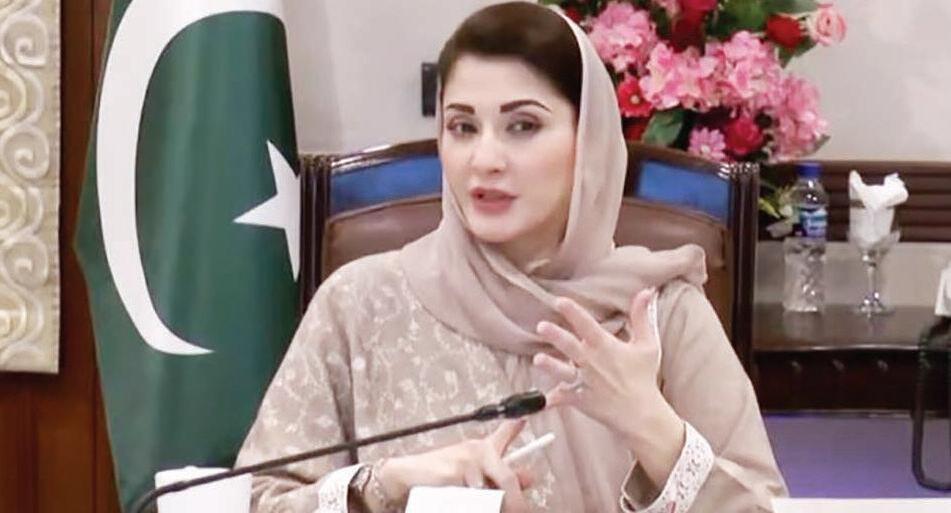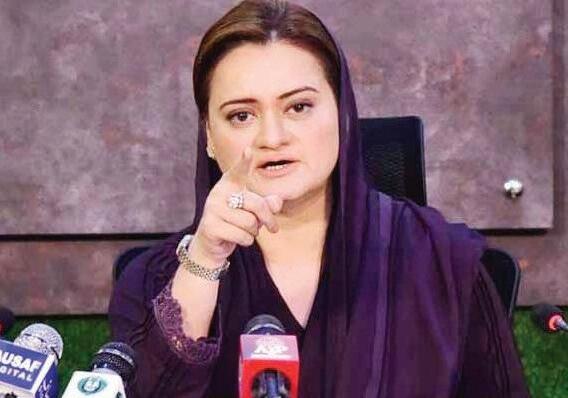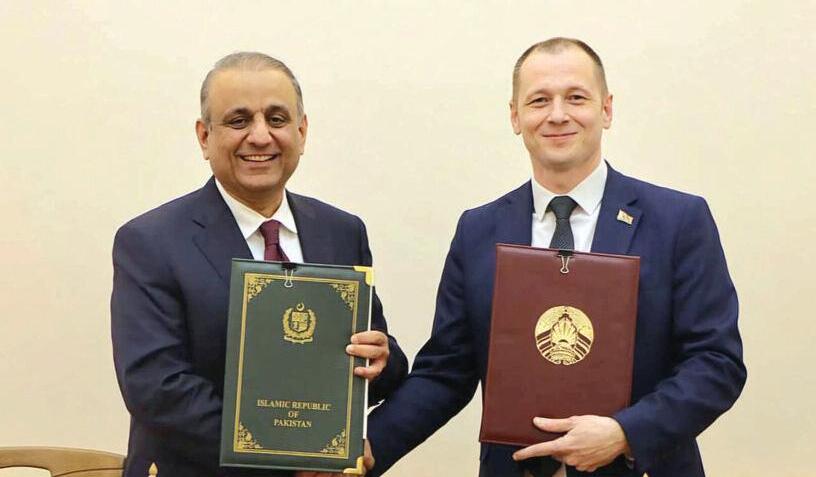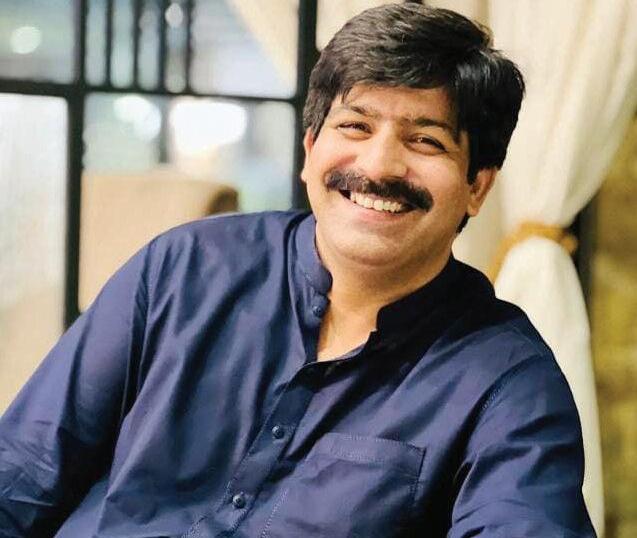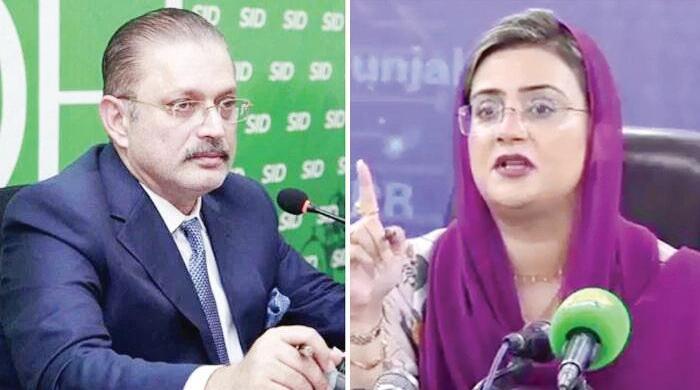
O S T O P A R M S F LO W T O T T P, B L A
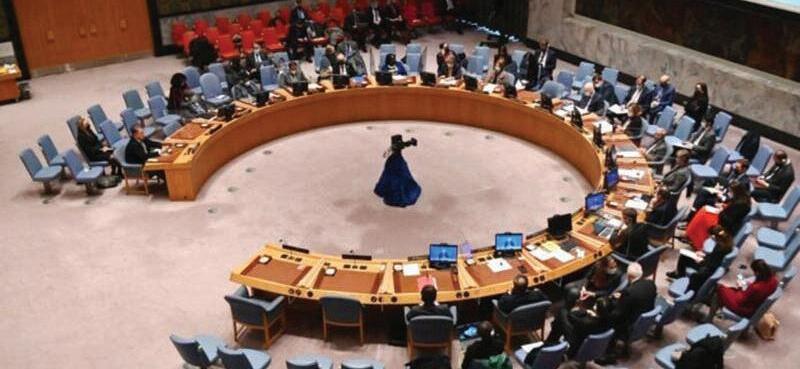
Pakistan’s economy on right track: Aurangzeb


Pakistan seeks Belarusian exper tise for tractor manufacturing plant, eyes stronger trade ties

regions
“Belarus holds a strategic geographic position for trade and Pakistan is keen to strengthen collaboration particularly in the communications sec-
tor ” Khan said adding that his visit was highly productive and would bring mutual benefits He expressed hope that an upcoming visit by Pakistan s prime minister to Belarus would further solidify the partnership Khan also invited Belarus to invest in Pakistan’s motorway infrastructure Minister Lyakhnovich welcomed the Pakistani delegation reaffirming Belarus commitment to expanding cooperation in various sectors He highlighted the importance of continued high-level exchanges between the two countries noting that such visits could expedite development efforts
During the visit Khan and his delegation toured a Belarusian tractor manufacturing plant in Minsk, which has been operational for 75 years The plant produces over 62 models of tractors and vehicles with an annual production capacity of 50 000 units It exports its products to several countries including Ukraine Azerbaijan

Romania Kazakhstan Russia Lithuania and Pakistan The delegation was briefed on the plant s environmentally friendly production processes and advanced technology Khan expressed interest in replicating the Belarusian model in Pakistan recognizing its potential to improve the country s agricultural machinery sector Pakistan is eager to establish a similar tractor plant and benefit from Belarus expertise,” he remarked Belarusian officials provided the delegation with a comprehensive tour of the facility addressing their queries on operations and export potential
Friday alone saw a record-breaking 26 79 billion shares change hands on U S exchanges, surpassing the previous record of 24 48 billion shares traded on January 27, 2021 By the close: n Nasdaq fell 962 82 points (-5 82%) to 15 587 79 marking a bear market
n Dow Jones sank 2,231 07 points (-5 50%) to 38,314 86, confirming a correction from its all-time high of 45,014 04 on December 4 n S&P 500 lost 322 44 points (-5 97%) to finish at 5 074 08 its lowest close in 11 months
The market is clearly voting against these policies How bad it gets now depends on how far the administration is willing to go, said Steve Sosnick, chief strategist at Interactive Brokers
downturn by yearend, compared to 40% previously Federal Reserve Chair Jerome Powell made his first public comments since the tariff announcement warning that the unexpectedly large levies could stoke inflation and slow growth presenting a complex challenge for U S monetary policy The flight to safety drove yields on the 10-year U S Treasury note below 4%, further pressuring bank stocks The S&P Banks Index dropped 7 3% on Friday alone All 11 sectors in the S&P 500 ended the day down more than 4 5% The energy sector led losses for the second consecutive day falling 8 7% in tandem with a 7 3% plunge in U S crude oil prices For the week, the S&P 500 dropped 9 1%, Dow Jones lost 7 9%, and the Nasdaq tumbled 10% “We’re in the Wild West of a trade war right now,” said Mariam Adams managing director at UBS Wealth Management capturing the mood on Wall Street as investors brace for further volatility

N i to r N g D
s k The Evacuee Trust Property Board (ETPB) has successfully recovered Rs463 3 million from various districts in rent and lease payments related to its properties As per media reports, the recovery was made from several districts, with notable amounts collected from Lahore-1, Peshawar, Sukkur, and Karachi Urban and Rural areas Lahore-1 led the recovery efforts with Rs136 4 million followed by Peshawar with Rs118 7 million and Sukkur with Rs94 6 million Other districts contributing to the recovery include Karachi Urban and Rural with Rs48 5 million, Rawalpindi with Rs46 million, and Lahore-2 with Rs49 million A total of Rs1 71 billion in dues is still pending with the ETPB having recovered approxi-
mately 27% of this amount In addition to these larger recoveries, smaller amounts were collected from districts including Multan (Rs42 million), Sahiwal (Rs10 million), Layyah (Rs10 4 million) Sialkot (Rs10 4 million) Sargodha (Rs4 8 million) Gujarat (Rs27 9 million) and Bhakkar (Rs11 million) Other areas such as Gujranwala Faisalabad Sheikhupura Okara Kasur and Bahawalpur also contributed to the overall recovery
However, progress remains stalled in three cities Jhang, Hyderabad, and Quetta where no recovery has been made The outstanding dues for these cities are Rs40 3 million for Jhang Rs70 97 million for Hyderabad and Rs10 09 million for Quetta The ETPB continues to work on recovering the remaining dues, which total Rs1 24 billion, in order to address the full scope of its financial liabilities





ATT h e B l i n d a n d D e a f E l i t e Pu t t i n g p e

faced significant challenges largely stemming from the elite s focus on short-term gains As a prime example of a rentier state, Pakistan relies heavily on foreign aid and remittances rather than fostering a robust internal economy The country has endured multiple financial crises necessitating several International Monetary Fund (IMF) bailouts that underscore the failure of the elite to implement meaningful economic reforms Each economic setback not only highlights the inadequacies of the ruling class but also deepens the cycle of dependency on external financial assistance Moreover the elite’s focus on maintaining their privileges has resulted in stark social inequalities Access to quality education healthcare and employment opportunities remains limited for the majority of Pakistanis The education system, in particular, has suffered from neglect, with the elite often opting for exclusive institutions while the masses are left with inadequate options This educational divide perpetuates a cycle of poverty and disenfranchisement ensuring that the elite remain insulated from the struggles faced by ordinary citizens
The persistence of elite capture in Pakistan has stifled the emergence of a robust civil society capable of holding power to account The voices of dissent have often been marginalized with activists and journalists facing repression for challenging the status quo In an environment where the elite are blind to the needs of the populace, the potential for grassroots movements to effect change is severely hampered The current geopolitical landscape has further complicated Pakistan’s situation as the country has become embroiled in great-power rivalries often playing a proxy role in larger global conflicts The relationship with the USAs char-

acterized by transactional engagements rather than mutual respect for democratic principles and the rule of law exemplifies this issue The elite’s willingness to align with foreign powers for short-term gains has often come at the cost of national integrity and sovereignty leaving the populace to bear the brunt of these decisions
The ongoing situation in regions like Baluchistan serves as a testament to the elite’s blindness and deafness to the grievances of ordinary citizens The province rich in resources yet plagued by poverty and underdevelopment has become a focal point for discontent The local population s demands for rights representation, and equitable resource distribution have frequently been ignored by those in power, highlighting the elite’s systemic disconnection from the realities of governance
For Pakistan to escape its status as a failing state it must dismantle the existing system of elite capture and establish a framework based on genuine democracy, the upholding of the constitution, and the rule of law This requires a complete reversal of the current path, necessitating a new social contract that prioritizes the needs of all citizens over the interests of a privileged few Only through such a transformation can Pakistan hope to build a cohesive national identity and foster a sense of belonging among its diverse populace
The elite capture of Pakistan has played a calamitous role in shaping the country’s trajectory since independence Their disconnection from the realities faced by ordinary citizens has contributed to a range of crises from political instability to economic dependency As Pakistan grapples with these challenges, it is essential for the elite to acknowledge their responsibilities and engage meaningfully with the populace Without such a shift, the prospects for a stable and prosperous Pakistan remain bleak as it is trapped in a cycle of failure that can only be broken through comprehensive reform and a commitment to the principles of democracy and justice
The author is a senior international banker, with degrees in economics and political science from University of Pennsylvania and Brown University
Midlife crisis in corporate Pakistan



AS Bangladesh finds itself on the tip of another critical juncture in its turbulent political history the country is struggling with a question that will shape its political landscape for years to come: Should the Awami League, the party that dominated its politics for over a decade and a half, be banned outright from participating in the democratic process? The political and ethical dilemmas surrounding this question have generated intense debate among politicians analysts and citizens alike The government s perception, as articulated by Chief Adviser Dr Muhammad Yunus, is not to ban the Awami League despite growing calls from the Jatiya Nagorik Party (NCP) and youth movements and has only deepened the crisis This moment in Bangladesh s politics is not simply a question of partisan disagreement It represents a crisis of democratic legitimacy, transitional justice, and state stability Juan J Linz and Alfred Stepan, in their influential work Problems of Democratic Transition and Consolidation argue that a functioning democracy requires not only formal institutions but also democratic commitment from major political actors The crisis in Bangladesh today illustrates what Linz and Stepan described as “democracy without democrats ” Many of the country’s key political stakeholders whether in the ruling interim government Jamaat-e-Islami or the emergent NCP appear committed less to the principles of democratic pluralism and more to political exclusionism
The call to ban the Awami League rests on charges of genocide and crimes against hu-
manity committed during the July movement and in prior years under Sheikh Hasina s administration While the demand for accountability is justified within the framework of transitional justice, the outright banning of a major political party raises difficult questions about pluralism and the minimum conditions of democratic competition Political theorist Giovanni Sartori in Parties and Party Systems (1976), warned that excluding large constituencies from the political process could lead to “delegitimization” of the entire system rendering elections meaningless as vehicles for consensus and representation
According to reports the BNP and the Jamaat-e-Islami have tactically refrained from supporting an outright ban, aware that the international community frowns upon such draconian measures Large democracies in the West, as well as the United Nations fact-finding mission have signaled clear disapproval of banning any political party As Linz famously remarked Exclusion breeds radicalization The Awami League, even if tainted by accusations, still commands support from a significant proportion 30 to 40 percent of the population according to Army Chief quotations cited by Asif Mahmud Ignoring or suppressing such a constituency risks breeding alienation and potentially violent insurgency
The demands for holding Awami League leaders accountable are rooted in what Ruti Teitel terms “transitional justice,” which she defines in Transitional Justice (2000) as “the conception of justice associated with periods of political change characterized by legal responses to confront the wrongdoings of repressive predecessor regimes While the trial of war crimes and crimes against humanity is legitimate and necessary for social healing, the danger lies in instrumentalizing justice for political gain
The chief adviser s announcement that certain Awami League leaders will face justice possibly at the International Criminal Court (ICC), seems an attempt to balance demands for accountability with the pressures of maintaining political inclusion Yet, this selective approach risks falling into what Teitel identifies as “extraordinary justice ” which often undermines legal norms and may erode public trust in impartial judicial processes The concern articulated by the experts
that the youth-led NCP is pursuing the wrong strategy by calling for executive orders rather than building public consensus and following due process echoes the caution of political theorists who emphasize the need for legitimacy in transitional justice mechanisms As Priscilla Hayner notes in Unspeakable Truths (2011) “Justice that is not perceived as legitimate fair and impartial can perpetuate grievances and hinder reconciliation
Bangladesh s current crisis also demonstrates the fraught relationship between military and civilian power The July movement, the subsequent involvement of security forces in politics and the military’s apparent ambivalence about the role of the Awami League highlight a dangerous politicization of the armed forces Samuel Huntington s classic work The Soldier and the State (1957) argued that military professionalism requires strict separation from political engagement Yet in Bangladesh, military actors have become central players in shaping political outcomes from the appointment of Dr Yunus as chief adviser to alleged proposals for rehabilitating the Awami League presented in cantonment meetings, as reported by Hasnat Abdullah Security analysts warn that dragging the army into political discourse risks undermining civil-military relations and destabilizing state security Now is not the time for division but for integration History shows that when military institutions become arbiters of political legitimacy, democratic institutions tend to erode, as seen in Pakistan and Egypt
The heightened military presence in Dhaka from Baitul Mukarram to Shahbagh raises further concerns about the balance of power between democratic institutions and coercive apparatuses As political scientist Ayesha Jalal has observed in The State of Mar-
Political scientists Arend Lijphar t and Donald

tial Rule (1990), reliance on military force to maintain public order often signals institutional decay rather than democratic consolidation At the heart of Bangladesh s current political impasse lies a deeper existential question: Who represents the nation? Benedict Anderson’s concept of the imagined community suggests that nationhood is a shared narrative constructed through common institutions and participation Yet Bangladesh s post-independence political trajectory has been flawed by contested narratives of legitimacy and betrayal whether over the role of the Awami League, Jamaat-e-Islami, or the BNP The NCP’s rhetoric casting the Awami League as a “genocidal party” and calling for its exclusion appeals to a moralistic narrative of purification But as political theorist Chantal Mouffe argues in The Democratic Paradox (2000) the health of democracy lies in the ability to transform antagonism into agonism an adversarial relationship in which opponents recognize each other ’s legitimate right to exist and compete
The politics of exclusion not only risks delegitimizing the democratic process but also
and institutional forbearance are critical norms in sustaining democracy When one party seeks the annihilation of another, democracy itself is imperilled The National Unity Commission’s ongo-









